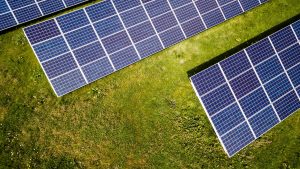On 10 June 2019, the Government lay legislation introducing a new supplier-led, subsidy-free Smart Export Guarantee (SEG). The SEG is designed to replace the Feed-in Tariffs scheme which was discontinued in March 2019. This transition to a Smart Export Guarantee is part of the Conservative vision that ‘electricity generation should be competitive, and market based.’[1] However, whilst a replacement for the Feed-in Tariff scheme is needed, there are gaps in the scheme that could potentially leave suppliers at a disadvantage. Suppliers may want to act now to urge the Government to rethink elements of the SEG and make sure the tools are in place for a smooth transition.
The SEG could create a postcode lottery for suppliers
The lack of minimum price[2] means that suppliers’ costs are entirely dependent on external factors. This could put suppliers at a competitive disadvantage based on the region they’re in. Areas with high demand, fewer small-scale generators and high consumer energy use, will result in suppliers paying more for energy imports. Lobbying the Government for a flat rate fee would help ensure consistency throughout the country.
The SEG introduction may place further pressure on energy infrastructure
Unlike Feed-in Tariffs, the Smart Export Guarantee is dependent on the generator having a functioning smart meter. Suppliers will therefore face further pressure to speed up the roll out. As there is no guarantee that the supplier purchasing the energy is the same as the supplier responsible for providing the smart meter, suppliers wishing to purchase energy could be dependent on another supplier installing the smart meter. This raises the possibility of energy going to waste while generators wait for installation to be completed. To ensure a smooth transition, suppliers may want to consider lobbying for the SEG to begin after the smart meter rollout has been completed when the necessary infrastructure is in place.
Government has an incentive to listen
By removing the income guarantee of the Feed-in Tariffs, there is little incentive for people to adopt new, early stage, sustainable technologies as the Government wants. Early stage technology is unlikely to be competitive meaning the generator will receive less (if any) income. This could affect renewable deployment, undermining policymakers’ ambitions. Suppliers could succeed with a lobbying effort built on a message of ensuring a diverse future energy mix, as the risks to the Government’s plans from not listening may provide enough leverage to ensure a full hearing.
[1] Chris Skidmore MP, Hansard, 10 June 2019, Vol.661 WS, Link.
[2] Department for Business, Energy and Industrial Strategy, The future for small-scale low carbon generation: Smart Export Guarantee – government response, 11 June 2019, Link.



